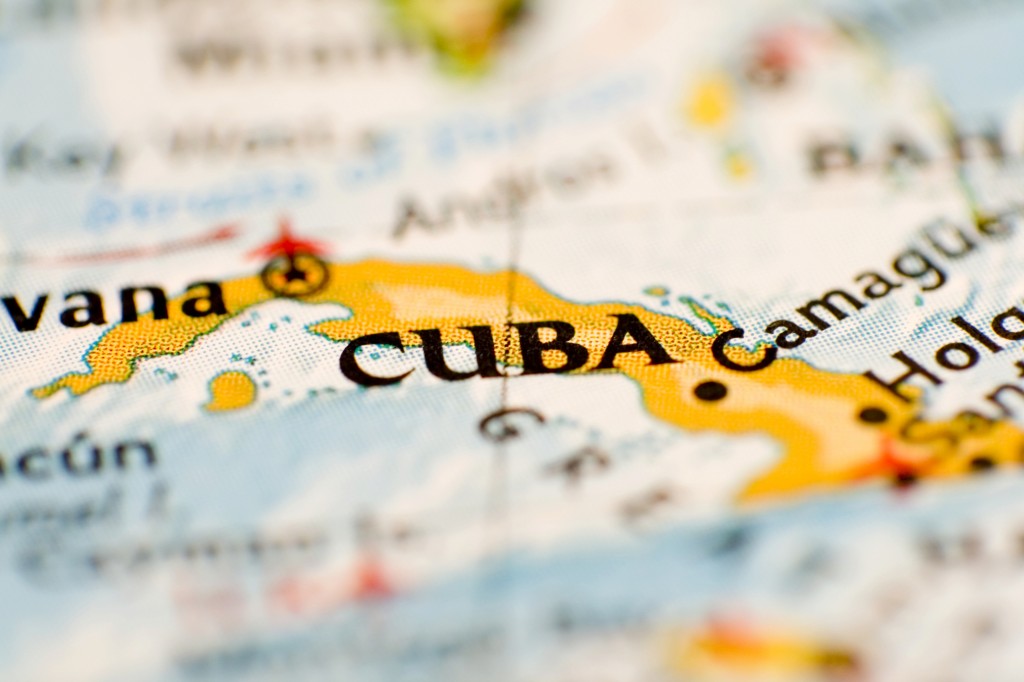 Since the Obama Administration’s recent publication regarding amended regulations that allow for expanded travel to Cuba, more Americans will be able to experience a destination that has been off-limits for 60+ years. And while the country’s infrastructure is improving to better accommodate foreign visitors, health officials warn travelers that there are health risks present in Cuba and it’s important to prepare accordingly. If you are one of the twelve types of travelers allowed to visit Cuba, stay safe and healthy while you’re there with our advice:
Since the Obama Administration’s recent publication regarding amended regulations that allow for expanded travel to Cuba, more Americans will be able to experience a destination that has been off-limits for 60+ years. And while the country’s infrastructure is improving to better accommodate foreign visitors, health officials warn travelers that there are health risks present in Cuba and it’s important to prepare accordingly. If you are one of the twelve types of travelers allowed to visit Cuba, stay safe and healthy while you’re there with our advice:
1) Understand Your Healthcare Options: Cuba is known for having much better and more accessible medical care than other developing countries; however, there are still many health facilities (including trauma care centers) that face shortages of medical supplies and bed space—especially outside of urban areas. That’s why it’s so important to make sure you’re prepared for any medical emergency that could arise during your trip. In addition to reviewing your current health insurance plan coverage outside the U.S., the CDC encourages all travelers to consider purchasing medical evacuation services (such as those offered by On Call!) prior to your trip.
Should you need a medical evacuation, On Call members can be evacuated to their home hospitals in the U.S. Additionally, we provide our members with worldwide medical, dental, and pharmacy referrals, prescription assistance, 24-hour nurse helpline as well as guarantees of payment and benefits coordination (useful in those instances when you have to show proof of payment to receive treatment). It’s not uncommon for Cuban hospitals—even in urban areas to require payment in cash in Cuban convertible pesos (CUC) or by credit cards issued by a non-U.S. bank.
2) Get Vaccinated: At this time, there are no required vaccinations to visit Cuba, but Typhoid and Hepatitis A—which are contracted through contaminated food and water – are risks for most travelers. In addition to getting both these vaccines, the CDC recommends travelers practice good food and water safety, including drinking bottled water or prepackaged drinks (even for brushing your teeth) during your stay, even in high-end hotels and restaurants. Rabies, even in urban areas like Havana, and Hepatitis B are also a concern for some travelers visiting Cuba. Rabies immunization is recommended for prolonged stays (especially for young children) as well as adventure travelers; the Hepatitis B vaccine is recommended for those planning to get piercings, tattoos, have sexual relations or medical procedures. Visit your physician or travel medicine specialist at least 4-6 weeks before you leave to determine what’s best for you. You may also want to check with your travel insurance company as some vaccinations may be required to satisfy your policy.
Note: In 2013, the Panamerican Health Organization (PAHO) issued an epidemiological alert noting the presence of Cholera in Cuba and confirming that foreign travelers contracted it. Eating or drinking fecally-contaminated food or water is the main risk factor for this disease, so following food and water safety precautions is essential.
3) Bring Your Own Medicines: Take a good supply of your regular medicines, as they may not be readily available in Cuba. Also consider packing a DIY travel first aid kit with necessary emergency medical supplies and over-the-counter medications just in case you need them and a drugstore isn’t right around the corner. Don’t forget to keep your medications in their original pharmacy-labeled containers (and in amounts commensurate with personal use) to avoid questions, or confiscation, at customs. You should also be sure to bring extra in case of travel delays. A copy of the prescription and a letter from the prescribing physician explaining the need for prescription drugs is also recommended to avoid potential issues from creeping up at security.
4) Watch What You Eat: If you’re looking for yet another reason to do everything you can to avoid contaminated food and water while traveling in Cuba, know this: Diarrheal illness is common among travelers to Cuba, even for those staying in luxurious accommodations. Traveler’s Diarrhea (TD) is a stomach and intestinal infection that occurs as a result of unsanitary handling of food, with the most common offender being bacteria called E coli. We probably don’t need to go into the specifics around the symptoms of TD, but anyone who’s had it knows it’s not a fun experience and can last up to 7 days. According to the CDC, Travelers’ diarrhea (TD) is the most common illness affecting travelers—each year between 20%-50% of international travelers, an estimated 10 million people, develop it. Travelers can avoid TD by practicing the same food and water safety strategies mentioned above.
5) Prevent Bug Bites: Diseases spread by mosquitos, such as Dengue, are a risk for travelers visiting Cuba. Wearing repellant that contains DEET, Picaridin, Oil of lemon, Eucalyptus/PMD or IR3535 is a good precaution, along with these other measures outlined by the CDC. Make sure to apply bug repellant after applying your sunscreen. And speaking of sunscreen—Cubans enjoy a subtropical climate with lots of sunshine year round, so don’t forget to apply your SPF 30 (UVA/UVB) sunscreen frequently and re-apply every two hours or immediately after excessive sweating.
Safe Travels!


